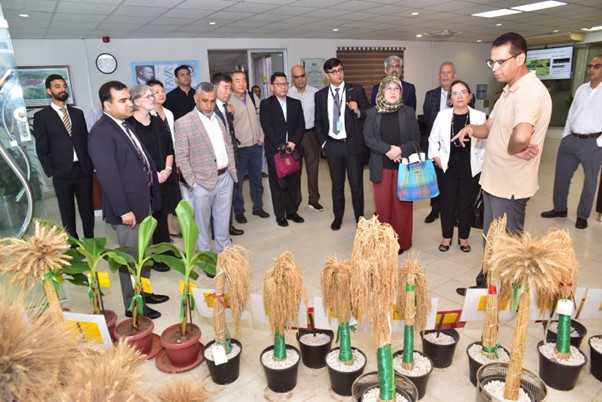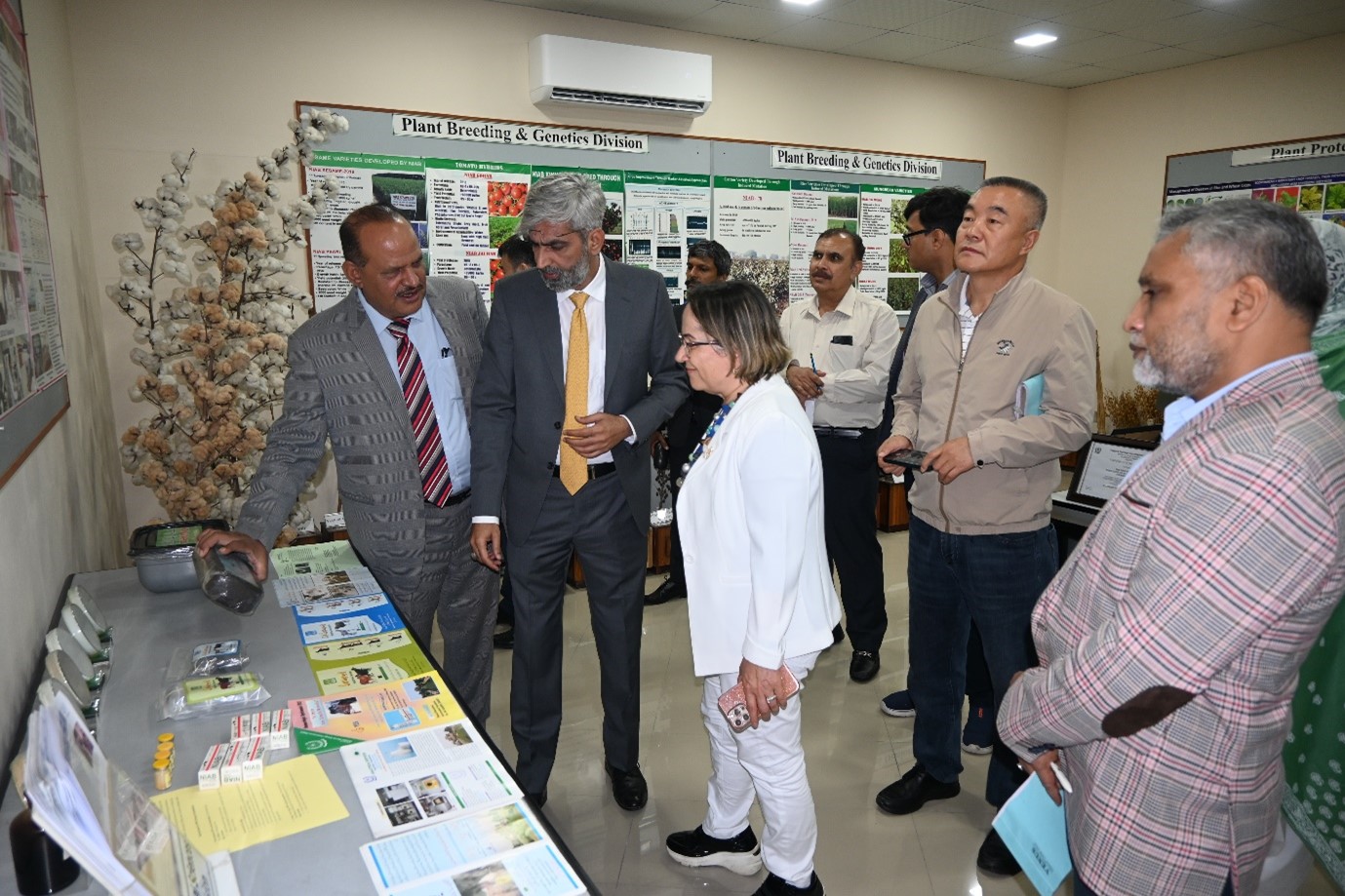Nuclear technology provides an opportunity for Pakistan’s agriculture sector to mitigate or adapt to climate change— according to a recent assessment mission by the Atoms4Food Initiative, the first of its kind in Asia and the Pacific.
The effects of climate change — including rising temperatures, erratic rainfall and the growing incidence of extreme weather events — pose a threat to Pakistan’s agricultural production. Yields for staple foods like wheat and rice, and cash crops such as cotton are constrained by scarce irrigation water, soil degradation and growing pest populations, all of which have negative impacts on food security and health of Pakistan’s 250 million inhabitants.
“Despite contributing less than 1% of global greenhouse gas emissions, Pakistan is highly vulnerable to climate change, experiencing significant economic damage from extreme weather events,” said Amir Mohyuddin, Federal Secretary for the Ministry of National Food Security and Research (MNFSR). “The agricultural sector, crucial to the Pakistani economy, faces dire consequences, with some projections indicating a potential substantial loss in production if current practices continue, due to increasing temperatures and erratic rainfall patterns.”
Pakistan was among the first in Asia and the Pacific region to commit to the Atoms4Food Initiative since its launch in October 2023. Following a request from the Government of Pakistan, an assessment mission was organized by the IAEA and the FAO in August 2025. Its goals were to consult stakeholders and analyse country-level data to better understand Pakistan’s food security and agricultural resilience needs before ultimately making data-driven, country-specific recommendations.


